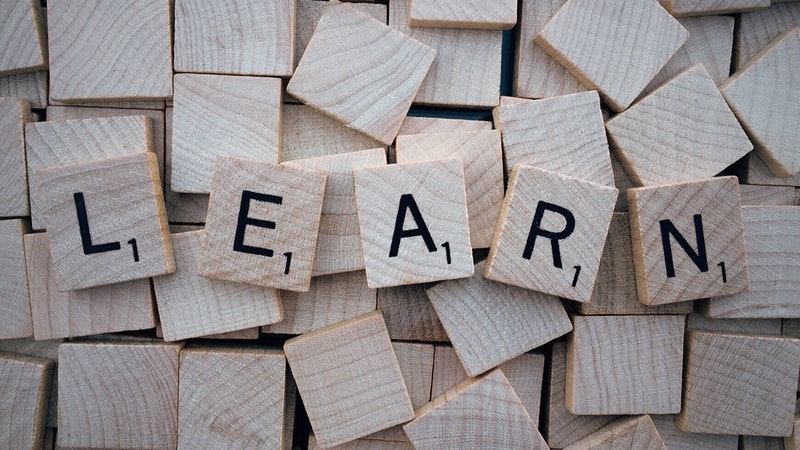What Is Effective Learning?
Episode #1 of the course The science of learning by Benjamin Keep
Welcome to “The Science of Learning”!
Ben Keep here. I’m a consultant with a PhD in learning sciences from Stanford. My research has focused on science education, but the learning principles we’ll discuss here apply to nearly any discipline.
Learning is everywhere today. Want to learn a new language? Want to learn to program? To cook? To paint? There are thousands and thousands of learning resources out there to choose from. How can we make the most out of these experiences?
This course answers that question by drawing on about 50 years of research on learning. I’ve distilled this research into ten short lessons that will help you choose and structure learning experiences wisely.
Teachers are indispensable for learning. Much of what they do influences learning outcomes. But learners can be effective and ineffective too. Effective learners do not passively accept their education like a bucket waiting for water to be poured inside—they take an active role in shaping their learning experiences.
To become an effective learner, we must do three things:
1. Set meaningful learning goals.
2. Use effective learning strategies.
3. Evaluate our progress and adapt.
Lesson 2 describes how to make meaningful learning goals, Lessons 3-8 cover effective learning strategies, and Lessons 9 and 10 discuss learning assessments. This lesson covers the first step to creating meaningful learning goals: understanding experts.
What Do Experts Do?
Experts in any field share several traits. Expert chefs don’t just know many recipes, they know why recipes work. They can invent and modify recipes because they know how flavors and textures interact. An expert physics student hasn’t just memorized a lot of physics formulas. They see problems differently, noticing the deep structures that apply to a problem, like Conservation of Energy or Newton’s Second Law. Novices, by contrast, pay attention to superficial features: These problems have ramps, those have strings, etc.
This is true in every field: Experts have highly organized knowledge structures in their brain. Part of learning is acquiring these “expert-like” structures. So, studying experts will be an ongoing part of any learning experience.
There are several ways of studying experts.
Identify the tasks that experts perform. What does the expert have to do first, second, and after that to accomplish what they want to accomplish? It’s easy to think only of the finished product instead of the decisions that led up to that product. This exercise helps break down expert performance into components that you can learn.
Take cooking as an example. What can the chef do? They can make amazing meals. That’s the finished product. What are the steps they take that lead to that finished product? They have to plan the meal, select quality ingredients, clean, chop, and prepare those ingredients, etc. We’re far from capturing everything that an expert chef does, but at least we’ve started breaking down the process into learnable parts.
Talk to or listen to an expert. Experts often have valuable insight into their own practices. After all, to get to where they’re at, they’ve often had to reflect on what they do.
Talking to a chef, especially as they’re making food, would be even better than just thinking about what a chef needs to do. You can ask questions like: What are the essential elements for this dish? What do you look for when buying this kind of fish? What’s the hardest part about cooking? Now you can get insight into how the expert organizes their knowledge.
Observe an expert. Experts may forget important steps in doing what they do. What has become “natural” for them may be quite unnatural for the novice (this is called “expert blindness”). Close observation can be valuable at exposing hidden expert practices.
We might observe that our chef tasted their dish and added a spice—an important moment that they didn’t describe. Or that they twist their knife in a certain way that they didn’t emphasize when they were showing you. These observations let you learn what experts don’t explicitly say.
How Can These Ideas Help You?
Learning is about walking down the path toward expertise. When you don’t know much about what experts do or how they do it, it’s impossible to orient your learning correctly. Opportunities to interact with experts in the field can be incredibly valuable throughout the learning process.
I’m currently learning Chinese. My textbook is great in that it organizes Chinese in a cohesive way, but as I’m learning, I have to keep in mind my ultimate goal: to speak and read Chinese fluently. There are often differences between “textbook” language and actual language-in-use (the “expert practices”). It’s the nuances of the language-in-use that I need to pay attention to as I learn. Consider your learning materials: Are they missing something that experts seem to do?
The rest of the course details specific strategies that promote more expert-like thinking and doing. Tomorrow, we’ll tackle how to make meaningful learning goals.
Happy learning!
Ben
Learn Something New Every Day
Get smarter with 10-day courses delivered in easy-to-digest emails every morning. Join over 400,000 lifelong learners today!
Recommended book
Salt, Fat, Acid, Heat: Mastering the Elements of Good Cooking by Samin Nosrat (A great example of how an expert chef thinks about cooking)
Share with friends

